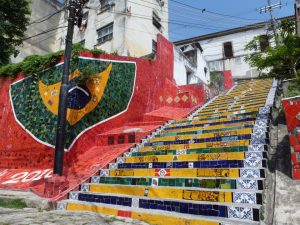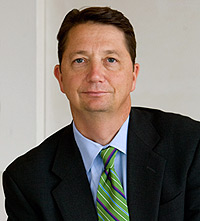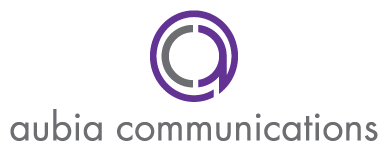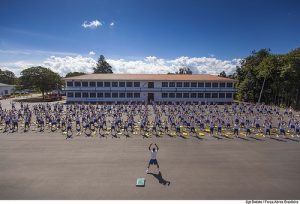 Living in São Paulo, Brazil for the past four months and a scheduled move to Zürich, Switzerland in early 2013 with many other international travels have developed my interest in how Public Relations is practiced globally. As globalization continues to bring different cultures closer, Public Relations practitioners are learning to work across borders to best support their clients.
Living in São Paulo, Brazil for the past four months and a scheduled move to Zürich, Switzerland in early 2013 with many other international travels have developed my interest in how Public Relations is practiced globally. As globalization continues to bring different cultures closer, Public Relations practitioners are learning to work across borders to best support their clients.
PR in Brazil is thriving as the economy continues to improve with its status as a BRIC nation. With organizations looking to break into this emerging market, its important for PR practitioners in the United States to understand the differences and similarities in how the profession is practiced here.
After posting on the LinkedIn Group for Media Diplomat about the differences in PR between Brazil and the U.S., I had the opportunity to speak with Stephen K. Dishart, APR about the subject. Dishart was the head of corporate communications for Swiss Re when the company expanded in the Brazilian market in 2008, beginning work with Brazilian PR practitioners in 2005. He now runs Dishart Communications and Crisis Management Consultants where he and affiliates with international experience “handle both internal and external communications matters that cross geographic and cultural boundaries.” Following is our Q&A session where he provided insight from his professional experiences working with Brazilian PR professionals in Rio de Janeiro and São Paulo.
1. How is PR practiced in Brazil?
It is all about relationships; relationships are very important in Brazil. You’ve got to get out, meet the people, and understand the business. It’s important to know people in Brazil and have face time with them; this translates into honesty and transparency there. You’re expected to know the market quite well, be proactive, and establish yourself as an expert in the business. For example, one of the tactics we used when we were establishing Swiss Re in Brazil was to make a pocket booklet with reinsurance terms translated into Portuguese, and we distributed this to clients. This established us and our local PR partner, S2Publicom, as experts and met the expectation of business there.
2. What are the main differences, in your opinion, of how PR is practiced in the U.S. and Brazil?
Public Relations in Brazil is a lot like PR was practiced in the U. S. 20 to 25 years ago, and that’s not to say it’s out of date. There are lots of social events between PR people and media members, and that again is the focus on relationships and face time. In the U.S. we are so busy, so under pressure, it’s all phone and email and you don’t get to meet in person a lot. In Brazil, you get to know the people on a personal level. Brazilian journalists would call me, and the first question they would ask was how my children are. The pace there is different, and that can be nice. Media practices also differ, especially in what’s on and off the record. In the U.S., we teach our clients you are never truly off the record. In Brazil, off the record is off the record, no kidding. The tape recorder is stopped, and clarifications are made. Staff change a lot in PR agencies in Brazil, and that’s common. The client manager and the president of the company are usually who clients work with directly.
3. What are the similarities?
Access and responsiveness are similar. If I ever had an issue, I was able to directly address that concern with the head of the firm. At the right level, you want the key people on the account, and you get that in Brazil as well as the U.S.
4. I’ve read in blogs from other practitioners in Latin America that since PR is a newer concept here, it is often lumped together with advertising. How do you think Latin American professionals can establish their own identity for PR?
Firms in Brazil do have a tendency to package it all together – Public Relations, creative, branding, marketing and advertising. There is so much we can do alone in PR, and practitioners have to draw that line in the sand and establish themselves as valuable resources to executives. Local knowledge of a market is essential in making this differentiation and proving your worth.
5. What do you predict are the major developments for PR in Brazil during the next five years?
Brazil has tremendous opportunities with everything that is happening there (emerging BRIC market, 2014 World Cup and the 2016 Olympics) to build its international capabilities. There is a lot more opportunity there now to leverage foreign press through affiliates and global relationships with PR professionals. Brazilian firms can build networks and relationships outside of their own circles, and they should extend that as much as they can to wherever they can. With its natural resources and clean energy, Brazil is also building a reputation on a commitment to the environment.
6. What advice would you give practitioners in the United States looking to work in Brazil or with Brazilian colleagues and vice-versa?
For both sides, go there, walk around, eat the food, meet the people, understand how time works there – you’ve got to have that sense of the people and culture. Learn the language. You don’t have to be fluent, but you need to know enough to converse with the right people who can provide local knowledge. Have an awareness of the major cities. In Brazil, you need to know Rio de Janeiro, São Paulo, and now also Brasilia. Influence on both sides is going to continue to grow, and professionals need to understand the differences and similarities.
 Before founding Dishart Communications and Crisis Management Consultants, Stephen K. Dishart, APR was a managing director of Communications and Human Resources for Zürich-based Swiss Re, a leading and diversified reinsurer with offices in more than 25 countries. He and his team were responsible for strategic internal and external communications as well as advertising and sponsorship in Latin America, Canada and the United States, Swiss Re’s largest market. Dishart began his career as a broadcast journalist, where he won a number of journalism awards for news reporting and was involved in network reporting of national news stories.
Before founding Dishart Communications and Crisis Management Consultants, Stephen K. Dishart, APR was a managing director of Communications and Human Resources for Zürich-based Swiss Re, a leading and diversified reinsurer with offices in more than 25 countries. He and his team were responsible for strategic internal and external communications as well as advertising and sponsorship in Latin America, Canada and the United States, Swiss Re’s largest market. Dishart began his career as a broadcast journalist, where he won a number of journalism awards for news reporting and was involved in network reporting of national news stories.
His personal philanthropic and volunteer activities include serving on the Board of Trustees of ArtsWestchester, where he led a rebranding of the organization, and serving on the boards of Green Chimneys Children’s Services and the New York League of Conservations Voters Education Fund.



